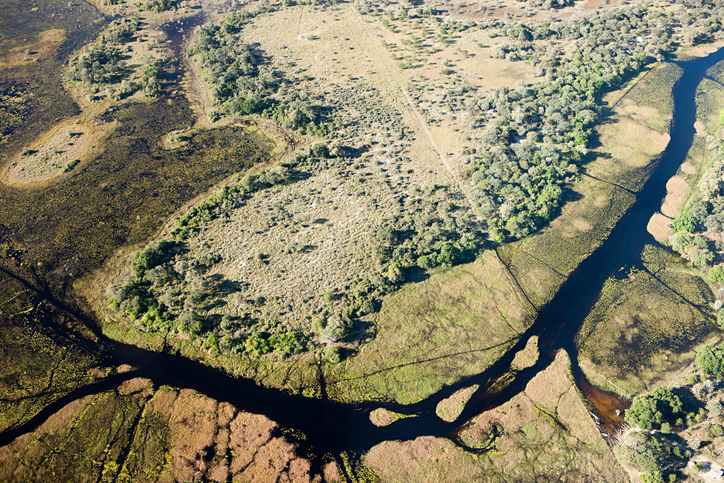
Footprinting and reporting
A good understanding of your carbon footprint can steer your climate action and open up new opportunities. Working alongside you, we measure, manage and minimise your carbon footprint (Scope 1, 2 and 3 emissions and product carbon footprints) while helping you communicate your progress.
Organisations that only use emissions data for reporting purposes will miss out. Understanding your Scope 3 footprint can provide a wealth of insights and identify opportunities for cost efficiencies.
Carbon footprinting is more than just a reporting tool. From defining your emissions hotspots to tracking reductions, carbon footprinting provides the baseline you need to implement and accelerate your sustainability strategy. It enables you to identify real opportunities to reduce your product and/or Scope 1, 2 and 3 emissions.
The benefits
By measuring, assessing and reporting your emissions, you have an opportunity to:
- Get ahead of incoming carbon footprint reporting legislation.
- Use carbon data to inform decisions across procurement, product design and logistics.
- Inspire product innovation and differentiate yourself from competitors.
- Take climate action to create genuine, quantifiable, and visible change for your stakeholders, including investors, customers, constituents and employees.
- Capture a clear picture of your carbon reduction achievements to date with reliable data.
- Strengthen your brand reputation as a credible and robust climate leader.
Scope 3 emissions
Scope 3 emissions represent a staggering 70-90% of most companies’ carbon footprint. While measuring these emissions can be challenging, addressing them is key to a credible climate strategy.
Our work in carbon footprinting
How we can help
Managing the vast amount of data to assess and reduce your footprint can be complex. Our experts are on hand at every stage of your footprinting journey to help engage your stakeholders, collect and analyse the data you need, calculate your footprint and report the findings.
We calculate footprints in line with internationally recognised standards such as the Greenhouse Gas Protocol, PAS 2050 and ISO Standards, as well as guidance specific to your sector, including Partnership for Carbon Accounting Financials. Doing so, you can create a robust baseline to propel your climate action. We support:
Corporates
We help businesses meet growing demands for disclosure and make more informed business decisions through:
- Value chain footprinting: Measuring Scope 1, 2 and 3 emissions in line with the Greenhouse Gas Protocol’s ‘Corporate Value Chain (Scope 3) Standard’. Our experts will guide you through the process and help you to improve the accuracy of your carbon data and your collaboration with suppliers and value chain partners. By progressing towards supplier-specific and activity-based emissions data, you can make an informed decarbonisation strategy, prioritise business decisions and ensure robust reporting. Once calculated, we provide third-party organisational carbon verification in accordance with ISO 14064-3.
- Product footprinting: Developing footprinting models and product footprints aligned to internationally recognised standards. In addition, we help businesses go a step further with the Carbon Trust label, so your customers can clearly identify the products which have had their carbon footprints verified by an independent third party.
Cities and regions
Public bodies partner with us to measure their carbon emissions from organisational Scope 1, 2 and 3 sources, using the GHG Protocol Footprint Standards to determine a robust boundary of emissions. This can include direct emissions caused by the energy consumption of your buildings and vehicles, as well as indirect emissions from waste, water, leased assets, investments, business travel, employee commuting and supply chains.
We also help cities, local governments and their partners to measure and set baseline footprints that will inform concrete area-wide climate action. Through territorial and consumption-based emissions accounting, using frameworks such as the GHG Protocol for Community-Scale GHG Inventories (GPC), we assess regional emissions energy consumption in domestic and non-domestic buildings, industry, transport and waste, as well as non-energy emissions from Land Use, Land Use Change & Forestry (LULUCF).
Financial institutions
Portfolio footprints
We work across the full spectrum of financial institutions to help them understand the carbon footprints of their portfolios, whether lending, investment, insurance or facilitation. We apply our leading understanding of international standards and methodologies to create tailored approaches and solutions for financial institutions looking to deepen their climate understanding and accelerate their transitions. We also work with financial institutions to communicate the results to stakeholders in a transparent and credible way.
Impact reporting and assessment
We develop tailored approaches to impact assessment and reporting for financial institutions and financial products, including GSS+ bonds and loans. We work with clients to produce high quality, easy-to-understand impact assessments for investors and relevant stakeholders that communicate genuinely green and sustainable outcomes.
Alignment with taxonomies
Sustainable taxonomies are classification systems for economic activities considered as sustainable, based on specific criteria and performance thresholds. Their aim is to increase the transparency and comparability of investments and financing. A range of taxonomies are being introduced in different parts of the world - such as the ASEAN region, Colombia, South Africa and the UK - which are built on the EU’s taxonomy and are tailored to the local context. With access to sustainable finance experts and climate experts in the relevant sectors of the economy, we can provide advice to financial institutions and companies on how to align with and incorporate sustainable taxonomies.
Why the Carbon Trust
For more than 20 years, we have been mobilising decarbonisation for businesses, governments, and public bodies around the world. Our experts co-authored the PAS 2050 Standard for footprinting and contributed to the development of ISO 14067 and the Greenhouse Gas Protocol Product Standards, empowering organisations to report their emissions with confidence.
We have a detailed understanding of best practice reporting and value chain footprint methodology given our advisory role in drafting the Greenhouse Gas Protocol's Scope 3 measurement guidance.












